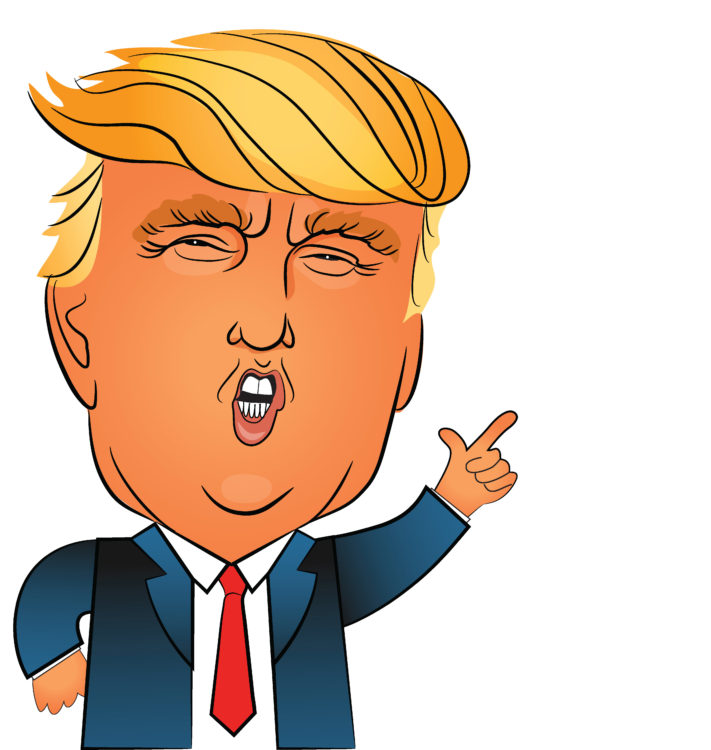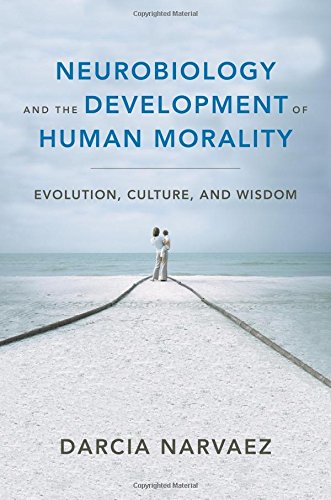Trump, Stress Reactivity, Trance And Ethics
Why are US citizens susceptible to Trump’s protectionist ethics?
George Lakoff describes Trump as evoking the Strict Father frame which attracts conservatives who tend to hold that frame (in contrast to the Nurturing Mother frame that liberals are more likely to evoke). Sylvan Tomkins in the 1960s argued similarly that one’s childhood experience with parents shape these types of world views (he called them ideo-affective postures). Harsh parenting brings about a “normative” posture and more responsive parenting brings about a “humanistic” posture.
In our research, we examine the mechanisms of their development and their developmental precursors.

What is interesting to note is that many people around the world have problems that are worse than those in the USA. So why doesn’t every country with the types of difficulties Coleman identifies rally around authoritarians like Trump? Why is the USA prone to authoritarianism? What brings about the Strict Father fame?
There are probably many answers to that question. Here is one.
Survival systems are systems that we are born with but that get “tuned up” by early life experience (or trauma). They include the (major) stress response (e.g., Hypothalamic-Pituitary-Adrenal or HPA axis), and the mammalian emotion systems that trigger the stress response (fear, rage, panic).
In early life, the foundations for sociality are supposed to be growing, like all the micro skills for getting along with others (initiating a social interaction, picking up on facial signals, recognizing emotions, expressing emotions, sharing eye gaze and its communications, etc.). But if a baby is routinely left isolated or distressed, these systems do not grow well. Instead, the survival systems get enhanced, with stress reactivity a dominant feature.
The USA is one of the only nations in the world that does not provide paid leave for parents with a new baby. As a result, many babies are shipped to daycare providers, the vast majority of whom cannot provide the sensitive care the baby needs to grow well. Even when a parent can stay home with the baby, they are often encouraged to force the baby to sleep alone, a toxic experience for a mammalian baby. These experiences undermine the child’s development, leading to a pervasive sense of threat, easily triggered throughout life.
As Paul MacLean pointed out, when threat is perceived the older parts of the brain can take over the whole mind. In fact, the stress response shifts blood flow away from higher order thinking, away from open-mindedness. The individual seeks to restore a sense of safety through several evolutionary mechanisms. Keeping out anything that is “not me” through territoriality. The importance of like-me ingroup membership is salient, leading to an us-against-them orientation and avoidance of anything different or unusual—difference appears threatening.
A threatened individual shifts among the survival system mechanisms—rage, fear, panic—as if in a trance, which leaves him susceptible to internalizing messages conveyed by an authority figure.
This probably especially works with a male voice. A deep sounding voice from above (a stage) will sound like mother’s voice transferred to the fetus in the womb. The calming effects are not mindful but mindless, a hypnotic trance.
Donald Trump is a master at triggering fear and a pervasive set of threats which puts susceptible listeners into a submissive trance. He offers a salve for the panic he has set in motion—any ideas he provides are taken in like a hypnotic trance.

When threat is pervasive and the mind is taken over by a survival orientation, moral perception shifts. The mindset is one of self-protectionism. Protectionist ethics are concerned with safety. Decisions and actions are made accordingly. In this mindset, it seems logical to think of taking up arms against the threat, to kill the threat. It seems right and good.
What’s wrong with protectionist ethics?
Protectionist ethics are fine if your child is being threatened by an oncoming car or if your house is falling down on your head. Taking extreme measures is reasonable. But protectionist ethics are not helpful in social situations because they are misleading. They mistakenly make you think you are alone, unconnected to others. They encourage social opposition instead of cooperation. They pit one person against another when negotiating interests is more effective and helpful to all. Lab studies show that when people are primed to be afraid, they become less cooperative.
Also at play in the followers of Trump are their beliefs. If you believe that you are superior to X but X is doing better than you think you are, then you get stressed because the world seems upside down. The survival systems will be evoked (rage, panic). X here can be males believing themselves superior to women, whites believing they are superior to other-colored people, Americans believing themselves superior to other nations. These kinds of beliefs lead to a sense of entitlement and are challenged by any improvement of the inferior group.
Many Trump supporters bring beliefs that have already triggered their stress response. They are further manipulated by Trump’s rhetoric. And in that state of survival orientation, they are provided with the solutions that he advocates: being dominant—perfectly reasonable and reassuring to the protectionist ethics activated.
Understanding how we are all susceptible to such rhetoric and manipulation is the first step to taking charge and not letting it control us. We can step back and logically think through what is being said. We can dampen down our fears by turning to our loving relationships that awaken in us other types of possibilities and alternative futures.
For more on these ideas, see Neurobiology and the Development of Human Morality: Evolution, Culture and Wisdom (W.W. Norton)
Embodied morality: Protectionism, Engagement and Imagination (Palgrave-Macmilllan)
Point of Departure: Returning to Our More Authentic Worldview for
Education and Survival by Four Arrows, aka Donald Trent Jacobs.
Featured photo Joseph Sohm / Shutterstock.com
Cartoon by TeddyandMia / Shutterstock.com


